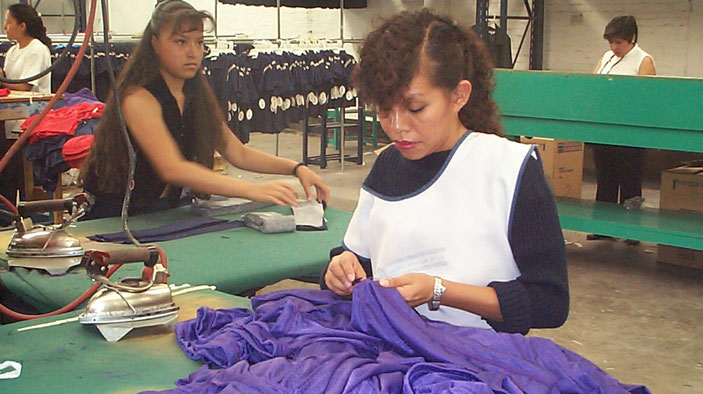Central America—Continuous Improvement in the Central American Workplace (CIMCAW)
Client: U.S. Agency for International Development
Duration: 2004-2008
Region: Latin America and the Caribbean
Country: Regional
Solutions: Sustainable Business Governance
In the globalizing economy, the challenge of implementing international and national labor standards has moved to the forefront of companies’ business and corporate citizenship priorities. For local suppliers, meeting labor standards is critical to ensure their global competitiveness. DAI worked in Central America with international apparel buyers that included Gap Inc., Wal-Mart, Limited Brands, and Timberland to enhance labor standards in apparel and textile factories. With financial support from the U.S. Agency for International Development (USAID) and multinational apparel companies, DAI worked with international and local nongovernmental organizations recognized for their workplace training approaches, and with unions and local governments to achieve sustainable change in workplace conditions. Active in Honduras, Guatemala, El Salvador, Nicaragua, and the Dominican Republic, this multistakeholder initiative worked with both workers and managers to integrate solution-based approaches into the management systems of local supplier factories. The training identified approaches for meeting national and international labor standards that enhance productivity and competitiveness. It also strengthened the capacity of local monitoring groups and government inspectors to carry out workplace evaluation now done by the multinational buyers.

Sample Activities
- Improve factory working conditions.
- Reduce the monitoring costs of the international companies.
- Create a model for change that can be replicated across industries and throughout multinational corporations’ global supply chains.
Select Results
- Catalyzed social dialogue in the apparel sector by organizing bilateral and multilateral meetings that created the neutral space necessary to build trust among stakeholders.
- Increased capacity of local partners to develop and design training curriculum and train workers and managers, specifically on labor rights and obligations; provided technical assistance to factories on labor-related matters; and improved industrial relations.
RELATED CONTENT:
Pakistan—Transforming Education in Pakistan (TEP)
The Transforming Education in Pakistan (TEP) programme managed a public advocacy campaign in Pakistan to ensure that parents and civil society groups support quality education.
Read More